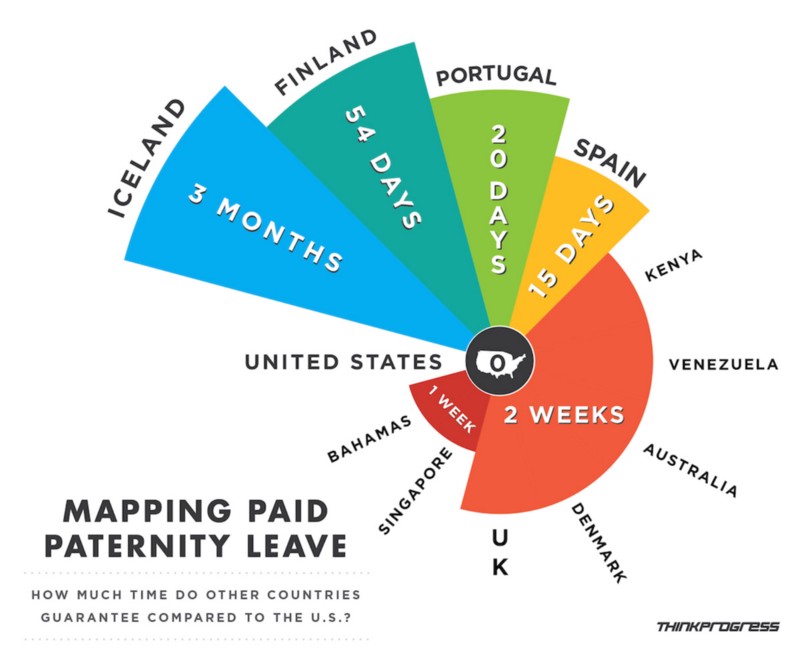In the United States, new parents aren’t guaranteed any paid time off. Instead, if they have worked for a certain amount of time at a company with 50 or more employees, they are guaranteed the ability to take 12 unpaid weeks off for the arrival of a new child.
That leaves us in lonely company. Out of 185 countries, the United States is one of just three that doesn’t guarantee paid maternity leave, the others being Oman and Papua New Guinea. Over half of the countries that provide leave give at least 14 weeks off. Here’s how that stacks up to other countries around the globe:

Fathers are similarly not guaranteed paid time off for a new child in the United States, but 70 countries also offer paid paternity leave. Here’s how the U.S. compares to a sampling of them:

In the U.S., just 12 percent of workers have access to paid family leave through their employers. Worse, less than half of all workers are covered by unpaid leave, giving them few options when they have a new child. A quarter of women either quit their jobs or are let go when a new child arrives, and of those who get only partial pay or nothing at all, a third borrow money and/or dip into savings while 15 percent go on public assistance.
Some Americans are slightly more lucky than others: three states, California, New Jersey, and Rhode Island, have implemented paid family leave programs. Evidence from the first two states shows that they haven’t hurt employers. About 90 percent of California businesses say that it either had a positive impact or none on profitability, employee performance, and productivity, while it helped reduce turnover, saving them an estimated $89 million each year. The majority of New Jersey businesses surveyed also said that it hasn’t hurt their finances and some saw a benefit.
Lawmakers introduced a bill in December that would guarantee that workers across the country could take paid family leave, which got a hearing on Wednesday. It would come with benefits for women, whose finances would improve; men, who would be able to spend more time with their children; kids, whose fathers would be more involved; and seniors, who could get care from family members.
